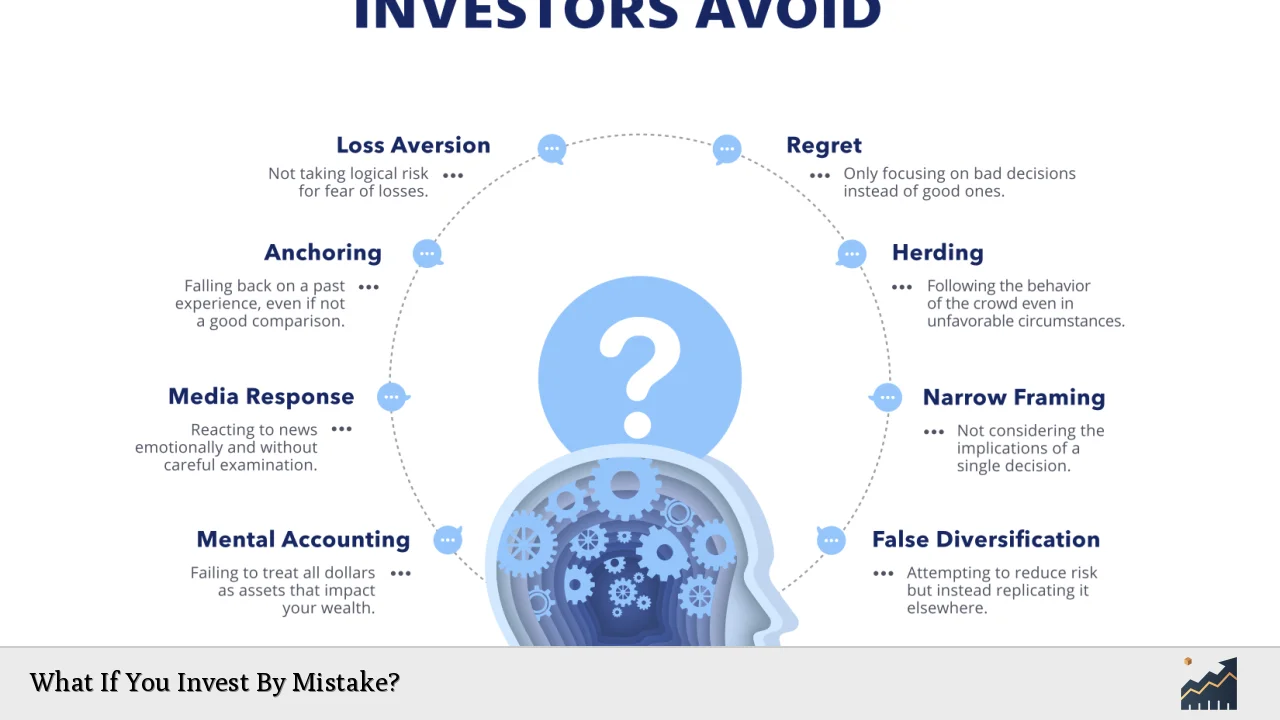Investing can be a daunting experience, and mistakes are an inevitable part of the journey. Whether it’s investing in the wrong stock, miscalculating risk, or failing to diversify, these errors can lead to significant financial losses. However, understanding how to respond to these mistakes is crucial for recovery and future success. This article explores practical steps to take if you find yourself in a situation where you’ve invested by mistake, helping you navigate the aftermath effectively.
| Step | Description |
|---|---|
| 1. Accept the Mistake | Acknowledge that an error has occurred and recognize its implications. |
| 2. Assess the Situation | Evaluate the extent of the loss and understand what went wrong. |
| 3. Develop a Recovery Plan | Create a strategy to recover from the mistake and avoid similar issues in the future. |
| 4. Learn from the Experience | Reflect on the mistake to improve your investment approach going forward. |
| 5. Move On | Let go of the emotional burden and focus on future investment opportunities. |
Accepting the Mistake
The first step in addressing an investment mistake is to accept that it has happened. This may seem straightforward, but many investors struggle with denial or blame external factors for their losses. Recognizing your role in the mistake is essential for moving forward.
Accepting your mistake allows you to take responsibility for your financial decisions. This acknowledgment can be empowering; it shifts your mindset from one of victimhood to one of control over your financial future. Remember that even seasoned investors make errors — it’s part of the learning process.
Once you accept the mistake, you can begin to assess its impact on your overall financial situation. This involves looking at your portfolio and determining how significant the loss is relative to your total investments.
Assessing the Situation
After accepting your mistake, it’s crucial to assess the situation thoroughly. This means taking a close look at what went wrong and how it has affected your investments. Consider these questions:
- What specific investment was made incorrectly?
- How much money was lost?
- What were the reasons behind this investment decision?
Understanding these factors will help you gauge whether the loss is temporary or if it could have long-term implications for your financial health.
Additionally, evaluate whether this mistake has affected other areas of your investment strategy. For instance, did you neglect diversification? Did you ignore market trends? These insights will guide your recovery plan.
Developing a Recovery Plan
With a clear understanding of your mistake, it’s time to develop a recovery plan. This plan should focus on both short-term recovery and long-term strategies to prevent similar mistakes in the future.
- Reassess Your Investment Goals: Ensure that your current goals align with your risk tolerance and investment timeline.
- Diversify Your Portfolio: If your mistake involved concentrated investments, consider spreading risk across different asset classes or sectors.
- Set Up a Monitoring System: Implement regular reviews of your investments to catch potential issues early.
- Seek Professional Advice: If you’re unsure about how to proceed, consulting with a financial advisor can provide valuable insights tailored to your situation.
A well-thought-out recovery plan not only addresses immediate concerns but also strengthens your overall investment strategy.
Learning from the Experience
Every mistake is an opportunity for growth, so it’s essential to learn from the experience. Reflect on what led to the error and how you can avoid similar pitfalls in the future. Consider keeping a journal of investment decisions where you note:
- The reasoning behind each investment
- Market conditions at the time
- Outcomes and reflections after each decision
This practice can enhance your decision-making skills over time by helping you identify patterns in your behavior or thought processes that may lead to mistakes.
Additionally, consider educating yourself further about investing strategies and market dynamics. The more knowledge you acquire, the better equipped you’ll be to make informed decisions.
Moving On
Finally, once you’ve accepted your mistake, assessed its impact, developed a recovery plan, and learned from it, it’s time to move on. Holding onto past errors can hinder future success by creating unnecessary anxiety or reluctance to invest again.
Focus on new opportunities rather than dwelling on what went wrong. The market constantly evolves, presenting fresh chances for growth and profit. By shifting your mindset towards future possibilities, you empower yourself to take calculated risks again.
Remember that successful investing often involves trial and error; resilience is key. Embrace each new opportunity with confidence while applying lessons learned from past mistakes.
FAQs About Investing Mistakes
- What should I do first if I realize I’ve made an investment mistake?
Acknowledge that you’ve made a mistake and assess its impact on your finances. - How can I prevent making similar mistakes in the future?
Develop a solid investment strategy that includes diversification and regular monitoring. - Is it worth trying to recover lost investments?
Yes, but focus on learning from the experience rather than solely seeking recovery. - Should I consult a financial advisor after making a mistake?
Consulting a financial advisor can provide valuable insights and help refine your strategy. - How can I emotionally cope with investing mistakes?
Accept that mistakes are part of investing; focus on moving forward rather than dwelling on losses.
In conclusion, making an investment by mistake is not uncommon among investors at any level of experience. The key lies in how you respond after realizing an error has occurred. By accepting responsibility, assessing the situation objectively, developing a recovery plan, learning from experiences, and moving forward with confidence, you can turn setbacks into stepping stones toward greater financial success.

